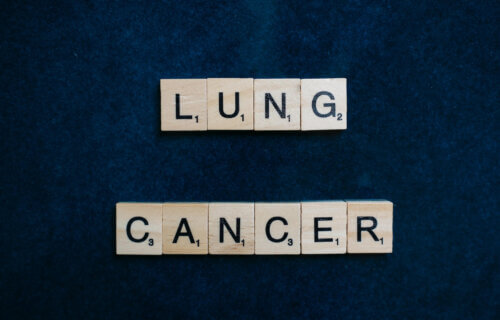VIENNA, Austria — Three-quarters of people under 30 diagnosed with lung cancer are already in the late stages of the disease — giving them just a three-percent chance of survival, a new study says.
Overall, researchers say people over 50 are far more likely to catch the disease earlier, when the chances of successful treatment are far higher. According to a team with the International Association for the Study of Lung Cancer, around 45,000 people between 20 and 49 were diagnosed with lung cancer between 2010 and 2018 and 75 percent of them were diagnosed during the cancer’s final stage.
While this rate did not change during the eight years, 50 to 79-year-olds experienced a significant shift in early detection, with only 40 percent of patients between 70 and 79 finding their cancer at stage IV.
By stage IV, the disease has spread to other parts of the body and patients battle a three to seven-percent survival rate over the following five years, according to Cancer Treatment Centers of America.
Do cancer screenings need to start earlier?
Researchers presenting at ASLC World Conference on Lung Cancer in Vienna say success in older patients is likely due to the “era of lung cancer screening,” America’s decade-long roll-out of early screenings to catch cancers before symptoms appear. However, the yearly screenings are only for high-risk adults over 50, such as those who smoke daily for over 20 years, leaving young people to fall through the cracks.
Study authors note that lung cancer does not usually cause noticeable symptoms until it spreads through the lungs or into other parts of the body. This means the outlook for the condition is not as good as many other types of cancer.
Researchers are calling for new ways to boost lung cancer detection in young people who are ineligible for a screening. They also fear that without improvement, the age disparity will widen. The team found around 1,328 lung cases in 20 to 29-year-olds, 5,682 in 30 to 39-year-olds, and 39,323 in 40 to 49-year-olds during the study period. The Boston team examined data from patients between 20 and 79 diagnosed with non-small-cell lung cancer, according to U.S. cancer databases.
“In this national analysis, we found that younger patients with lung cancer are significantly more likely than older patients to be diagnosed with later stages of disease,” says study author Alexandra Potter, Program Director of the American Lung Cancer Screening Initiative at Massachusetts General Hospital in Boston, in a media release.
“These findings illustrate the need to develop strategies to increase the early detection of lung cancer among younger patients who are currently ineligible for lung cancer screening.”
South West News Service writer Pol Allingham contributed to this report.


The time to address cancer is now, TODAY – not when some clueless doctor gives you the diagnosis, then sends you to a crooked, sociopathic oncologist. Once in the late stages, their goal is to milk you dry and make lots of money offering false hope.
Cancer prevention is all about optimal nutrition and an active lifestyle, including regular exercise. Of course, don’t expect to hear this from your doctor; they fear this truth, because most patients will fire their own doctor if they get too truthful with such patients. Taking ownership of your health today is not a popular notion. People prefer to be little victims.